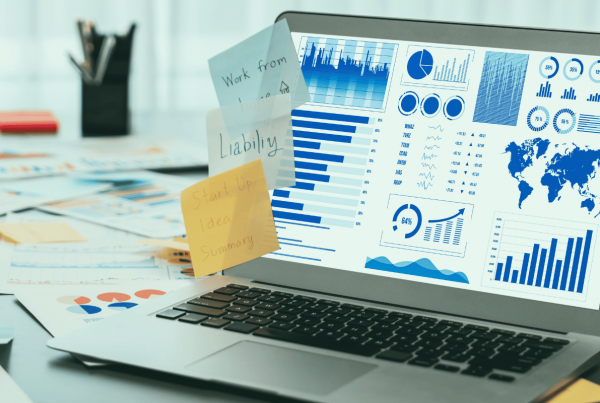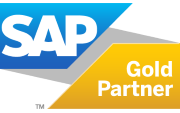Are you considering equipping your business with a Finance ERP? Or do you want to maximise the results and productivity of your Finance department?
You’ve come to the right place!
In this new article on finance and accounting in business, Evelyn Moussavou Nenet, Senior Project Manager at Sileron, presents all the essential features you need for your future finance ERP. He explains the SAP solutions available to you and how they can meet your needs.
But before we begin, it’s worth asking yourself…
What is a “good” finance ERP?
According to our SAP expert Evelyn: “A good finance ERP is one that supports and accelerates the digital transformation of the finance function. It will rely on new technologies that offer greater efficiency and effectiveness to teams. It must also be adaptable to the specific characteristics of the company’s business sector. It must include all the features that are essential for the smooth running of a finance department”
Essential features of an accounting and finance ERP
Your Finance and Accounting department has a wide range of responsibilities. To function properly, it needs reliable processes and management tools.
For Evelyn, your finance ERP should, as a minimum, be able to cover all of the following features:
Table of basic features for the smooth running of a Finance and Accounting department
| Essential features | Specific applications |
|---|---|
| Accounting and financial management – General accounting – Cost accounting – Auxiliary accounting – Accounts receivable and accounts payable |
– Entry of accounting entries, journal management and preparation of balance sheets, income statements, etc.
– Management of supplier and customer invoices, payment tracking and customer reminders |
| Cash flow management | – Monitoring future cash flows and managing liquidity
– Monitoring incoming and outgoing payments, automatic bank reconciliation |
| Asset management | – Fixed asset management, depreciation and amortisation tracking |
| Audit | – Monitoring and documentation of financial processes for internal and external audit purposes |
| Integration | – Ability to exchange data with the ERP’s management control, purchasing, sales, HR and production departments
– Connection with external software or banking systems via API |
| Automation | – Process automation: reduction of manual tasks (data entry, reconciliations, reports) – Dematerialisation of customer and supplier invoices – Approval flow management (expenses, payments) |
Taking into account the specific characteristics of the company
While it seems obvious that the ERP system impacts the purchasing, production and logistics departments due to the company’s field of activity, the same is true for the finance department.
Evelyn reminds us: “All of the company’s activities have an impact on the finance department. For a company in the import-export business, for example, there are financial risks associated with exchange rates. A company that operates exclusively in the domestic market will not have this type of issue. It is important to remember that, due to the nature of the data it processes, finance also tells the story of the company.”
It is therefore essential to take into account the specific characteristics of the company’s business area in the Finance ERP system. This is why SAP offers business-specific solutions under the “SAP IS” umbrella in its S/4HANA ERP system. These solutions can integrate basic functionalities that are highly specific to the company’s business area. Take the example of an oil company: SAP IS-Oil Finance ERP integrates material balances and temperature-based inventory management, for example.
As well as adapting to changing markets…
Today, everything moves so quickly. Being able to perform fast closing is a challenge for finance and accounting teams. But to do so, it is necessary to have up-to-date data in real time, as well as software that automates as many actions as possible.
Finally, let’s not forget the importance of compliance. With rules that change regularly and vary from country to country, ERP has a role to play in helping the Finance Department meet local and international tax and regulatory obligations.
How do SAP solutions meet the needs of finance and accounting departments?
Finance is at the heart of all developments in SAP ERP solutions.
As Evelyn reminds us, “SAP actually started out in finance. And in 2015, when S/4HANA was launched, the Finance module was the first to benefit from these developments. Its built-in reporting capabilities and increasingly rapid integration with other business functions thanks to Fiori have literally revolutionised the way it is used.”
That’s why (good news!) SAP S/4HANA and all SAP ERP solutions include the essential features we mentioned at the beginning of this article.
SAP S/4HANA Cloud ERP
SAP S/4HANA Cloud ERP is the SAP management solution that offers the most innovation for finance.
With a single interface dedicated to reporting and transaction tracking, you will never look at finance and accounting in the same way again. Integrated data visualisation clearly breathes new life and a modern vision into the presentation and analysis of financial and accounting data.
Features such as predictive analytics, artificial intelligence, machine learning and digital assistance make it the co-pilot of choice for financial services.
SAP Business ByDesign ERP
SAP Business ByDesign ERP is the intelligent cloud ERP for small and midsize businesses.
Equipped with real-time analysis tools, it is a real performance booster for businesses. What’s more, with its pre-configured management scenarios, you are sure to find the business process that best suits your finance department.
SAP Analytics Cloud (SAC) EPM
SAP Analytics Cloud, known as “SAC”, is an EPM (Enterprise Performance Management) solution.
It is a tool that integrates with your ERP and is specifically designed to:
- present customised KPIs
- monitor your company’s results
- work on forecasts
- budget revisions
This is the heart of Business Intelligence (BI). The key strength of SAC is its ability to process large volumes of data from different sources in a remarkably short time.
Add-ons and connectors
And because your finance department is likely to use third-party applications, your finance ERP must be able to integrate them.
That’s why at Sileron, we have developed the ERP Customizer.
The ERP Customizer is a platform dedicated to SAP add-ons and connectors for ERP S/4HANA and Business ByDesign.
For example, our catalogue of add-ons and connectors includes:
- The “Invoice Integration” add-on:
This add-on allows you to integrate all invoices received by email into your SAP ERP. Say goodbye to the risk of data entry errors or duplicates and reduce your paper consumption.
- The “Exchange rate update automation” add-on:
This add-on will make your finance department’s work easier by automating exchange rate updates in your SAP ERP.
- The “Bank Connector”:
The bank connector allows you to automatically incorporate all bank statements into your SAP ERP. Secure and simplified banking transactions will become the watchwords of your finance teams.
The importance of working with SAP Finance consultants to implement your solution
Choosing the best Finance ERP for your business is great.
But having the support of experienced and motivated SAP FI-CO consultants is even better! For Evelyn, there’s no doubt about it. For a successful SAP implementation of your Finance ERP, it is important to surround yourself with consultants who specialise in the field: “Because it’s faster! They have all the necessary experience in SAP projects combined with technical, functional and business expertise. This ensures that you minimise implementation risks, control costs and stay on schedule.”

This article was written by Tiphanie Le Gall with the participation of Evelyn Moussavou Nenet, Senior Project Manager at Sileron.
For over 15 years, Evelyn Moussavou Nenet has been involved in SAP ECC and S/4HANA ERP implementation projects, providing technical support and project management assistance. He has extensive expertise in the utilities, industrial, retail and public sectors.





